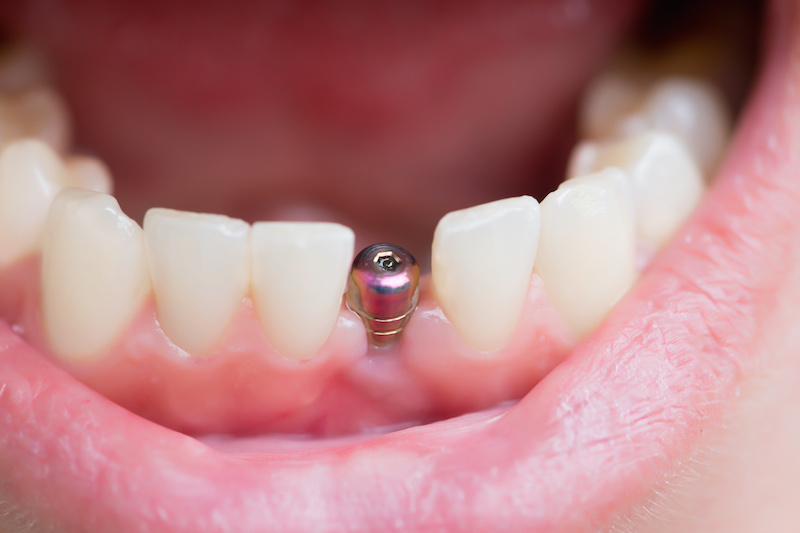 Dental implants in Vero Beach are a popular and effective solution to the problem of missing teeth, with an astounding success rate to recommend them. 95% of the time integrated implants last at least a decade. Like any form of treatment, however, an implant can fail in certain circumstances. Knowing as much about the procedure as possible can help dental patients to enjoy greater peace of mind and improved long-term results.
Dental implants in Vero Beach are a popular and effective solution to the problem of missing teeth, with an astounding success rate to recommend them. 95% of the time integrated implants last at least a decade. Like any form of treatment, however, an implant can fail in certain circumstances. Knowing as much about the procedure as possible can help dental patients to enjoy greater peace of mind and improved long-term results.
Potential Causes of Implant Failure
On those rare occasions that implants do fail, the cause usually involves one of three factors:
- Problems during surgery. A qualified dental professional will only place implants where there is adequate support from the underlying bones and the surrounding teeth. The operating area must remain absolutely sterile during the procedure. Implant failure may result if these protocols are not observed. This points out the need for a dentist with the correct training and experience in the field.
- Non-dental health conditions like cancer, advanced arthritis, or diabetes. For example, cancer patients who receive radiation therapy in the head or neck have an increased rate of dental implant failure. Certain medications, such as compounds used to treat osteoporosis, can also cause problems. It’s important to give your dentist a complete list of all medicines you take, including over-the-counter products.
- Lifestyle factors. Tobacco use, physical inactivity, excessive alcohol consumption, poor diet, and illicit drugs can all lead to complications with implants. An implant acts like part of the patient’s body, requiring that he or she maintain a reasonable degree of overall health.
How to Avoid Dental Implant Failure
Dental implant placement is a surgical procedure, with all the precautions and considerations that surgery entails. The patient should be able to tolerate the anesthetics and other drugs used in the process. He or she should follow the dentist’s recommendations for post-operative care and report any problems with the implants right away.
After recovery the patient should brush at least twice daily, floss once a day, and visit a dental professional as recommended for cleanings, checkups, and other treatment. Let your dentist know if you’re prone to mouth or gum infections. These may require antibiotics or other supplementary measures to ensure satisfactory results.
Putting It All in Perspective
Properly placed and cared for, dental implants are an effective option for treating missing teeth. They avoid the limitations of dentures and bridges, require only reasonable care, and enable the patient to enjoy a normal, well-rounded diet that includes healthy foods like fresh fruits and vegetables. They help to prevent jawline erosion and other chronic issues while enhancing the patient’s self-confidence and social interactions. They’re almost always indistinguishable from the surrounding teeth.
An informed patient is one of the most important safeguards against any kind of medical complication. Choose your implant dentist with care and ask him or her any questions you may have prior to the procedure. Afterwards, give your teeth and gums the daily attention they need. That way, you can enjoy your implants for a very long time to come.
About the Author
Dr. Giuliana Diaz Jones is a prosthodontic specialist with advanced training in dental implant placement. Her fields of expertise include emergency dentistry, mouth reconstruction, and cosmetic procedures. You can reach her office online or by calling (772) 234-5353.
